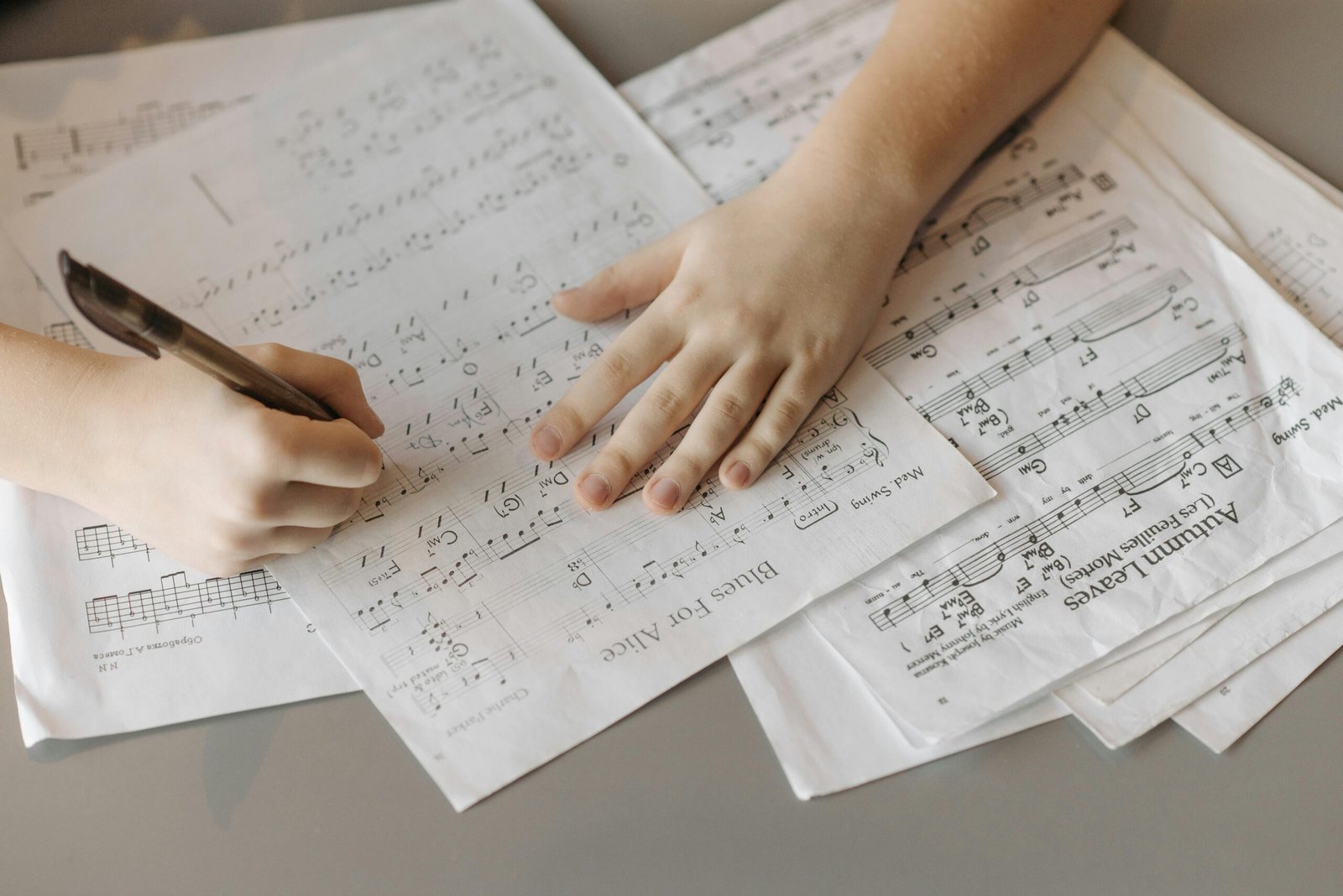MUSIC EDUCATION
Why should you learn music theory?
Akanksha Gupta| June 11, 2025 | • 5 min read

The Foundation
At Rethink Raaga Music School, we believe that music is a universal language, and understanding its grammar makes you a truly fluent speaker! For every aspiring or seasoned musician in India, grasping the basics of music theory isn’t just an academic exercise; it’s a powerful tool that unlocks deeper understanding, enhances creativity, and opens up new avenues in your musical journey.
So, why should you, as a musician in India, whether you’re passionately humming Bollywood tunes, delving into the intricacies of Carnatic ragas, or shredding on your guitar, truly Rethink your approach to music theory? Let’s explore!
The Benefits
Unlocking the “Why” Behind the “What” in Your Music
Imagine trying to cook a delicious biryani without understanding the role of each spice, or how to balance the flavours. You might get something edible, but it won’t be a masterpiece! Music works similarly. When you learn music theory, you move beyond just knowing what notes sound good together and start understanding why they create that magic.
- Harmony and Chords (Swara and Shruti): You’ll grasp why a major chord evokes happiness, or why a particular sequence of notes in a raga creates a specific mood. You’ll understand the relationship between swaras and shruti in a deeper sense, even if your primary focus is Western music. This understanding allows you to intentionally create specific emotions and textures in your music.
- Melody and Raga: Theory helps you understand how melodies are constructed, how they interact with underlying harmonic structures (even subtle ones in Indian classical), and how to create engaging and memorable lines. You’ll learn about intervals, scales, and motifs, giving you a framework for crafting compelling melodies, whether they are based on Western scales or intricate Indian ragas.
Speaking the Universal Language of Music
Music truly is a universal language, and music theory provides the grammar that allows musicians from different backgrounds to communicate seamlessly. Whether you’re jamming with friends, collaborating on a fusion project, or working in a professional studio, a shared theoretical vocabulary is invaluable.
- Seamless Collaboration: Imagine a band leader saying, “Let’s modulate to the subdominant,” instead of fumbling through “Play the same thing, but like, four steps up.” Clear communication saves time and frustration, especially when working with musicians from diverse musical backgrounds.
- Recording Studio Confidence: When working with producers, sound engineers, or other session musicians, a shared theoretical understanding streamlines the process, leading to more productive and creative outcomes. You’ll be able to articulate your musical ideas precisely.
- Arranging and Composing: If you’re arranging a piece for multiple instruments or composing for an ensemble, knowing theory is crucial for ensuring that each part complements the others harmonically and melodically, creating a rich tapestry of sound.
Fueling Your Creativity and Breaking Musical Blocks
Some musicians worry that theory will make their music rigid or predictable. At Rethink Raaga, we believe the opposite is true! Music theory provides a treasure trove of techniques and concepts that you can use to break creative blocks and explore new sonic territories.
- Beyond the Familiar: Stuck on a chord progression or a melodic phrase? Theory can show you alternative voicings, inversions, or substitute chords that can inject new life into your music. For Indian classical musicians, it can help you explore raga variations with a deeper analytical lens.
- Intentional Experimentation: Instead of just randomly trying notes, theory allows you to experiment with purpose. You can explore different modes, apply advanced harmonic concepts, or intentionally create dissonance for a specific effect, leading to truly unique compositions.
- Learning from the Masters: With a theoretical foundation, you can dissect your favourite songs – be it a timeless classical composition, a popular film song, or a complex jazz piece – and understand how the artists achieved certain sounds or emotions. This analytical skill is invaluable for your own growth and development.
Sharpening Your Ear and Honing Your Craft
Music theory and ear training are two sides of the same coin. The more you understand the theoretical relationships between notes and chords, the better you’ll become at identifying them by ear. This is a game-changer for any musician.
- Recognising Ragas and Chords: You’ll start recognizing major and minor scales, common chord types, and even the subtle nuances of different ragas and their characteristic phrases, just by listening.
- Effortless Transcribing: This skill is incredibly useful for learning new songs by ear. You’ll be able to quickly pick out melodies, bass lines, and chord progressions, expanding your repertoire and understanding of different musical styles effortlessly. Imagine learning a new film song by ear and immediately understanding its chord structure!
Bridging Musical Worlds and Expanding Your Horizons
Once you grasp the fundamental principles of music theory, you’ll find that many concepts are transferable across different instruments and genres, from Western classical to Hindustani, Carnatic, and contemporary fusion.
- From Guitar to Harmonium: The concept of intervals, scales, and chords remains the same, even if the fingerings are different. Understanding the theoretical underpinnings makes learning a new instrument significantly faster.
- Classical to Contemporary: While the stylistic conventions differ, the underlying theoretical framework often shares common ground. Understanding jazz harmony, for instance, builds upon basic classical harmony, and both can inform your approach to Indian film music.
- Digital Music Production: Even in modern electronic music production, an understanding of rhythm, harmony, and structure is crucial for creating compelling tracks that resonate with listeners.
Ready to Rethink Your Musical Journey with Rethink Raaga?
Learning music theory doesn’t have to be a daunting task. At Rethink Raaga Music School, we believe in making music education engaging, accessible, and truly human-friendly. Our online music classes are designed for Indian audiences, blending traditional musical insights with contemporary teaching methods.
Our experienced instructors demystify complex concepts, ensuring you understand the “why” and not just the “what.” We offer:
- Personalised Online Classes: Learn from the comfort of your home, at your own pace, with dedicated one-on-one attention.
- Comprehensive Curriculum: From the basics of notes, scales, and chords to more advanced harmony and composition, our courses cover essential music theory for all levels. We also weave in relevant examples and connections to Indian musical traditions.
- Expert Guidance: Our passionate educators are not just skilled musicians but also dedicated teachers who are committed to your growth.
- Flexible Timings: We understand your busy schedule and offer timings that work for you.
Don’t just play music, understand it, create it, and live it!
Learning music theory with Rethink Raaga will not only enhance your technical skills but also deepen your appreciation for music, allowing you to express yourself more creatively and confidently.
Take the first step towards becoming a more complete and confident musician. Explore our online music classes today!
Visit Rethink Raaga Music School to know more and enrol in a free demo class!

